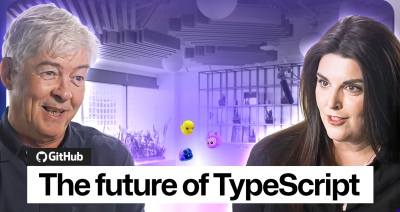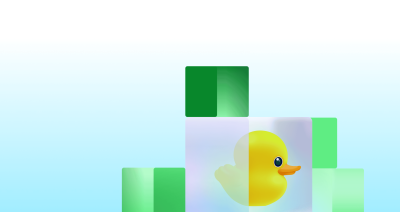The most popular courses on GitHub
Thousands of teachers use GitHub to host their courses, distribute assignments, and get insight into student progress. Between Massive Open Online Courses (MOOCs) and custom lessons from individual teachers, there’s plenty of materials for new teachers to adapt and reuse in their classrooms.
Thousands of teachers use GitHub to host their courses, distribute assignments, and get insight into student progress. Many teachers open source their materials, so other teachers can use them. Between Massive Open Online Courses (MOOCs) and custom lessons from individual teachers, there’s plenty of materials for new teachers to adapt and reuse in their classrooms.
After seeing the growth of educational repositories on GitHub, we put together a list of some of the most popular courses. Courses were selected based on forks (repository copies) and stars (bookmarks that indicate interest). You’ll also find documentation for each of the repositories to guide you through the course materials.
If we missed a course, or if you’d like yours included in a more extensive list, let us know in the GitHub Education Community.
Top courses based on stars
1. Ada Developers Academy’s Jump Start Curriculum (223 stars)
ADA’s Jump Start Curriculum helps prospective students become familiar with the tools, concepts, and vocabulary they’ll need to be successful in the larger program. Each lesson begins with stating learning goals, so students can be sure they’re retaining what they need to prior to entering the program.
2. React From Zero (207 stars)
React From Zero is a straightforward introduction to React that is broken into 17 parts. Each part of the tutorial is in the code for that lesson, using comments to explain concepts in React and examples right in the editor. Each lesson also links to a preview of how the code renders in a browser, so you can follow along and immediately see the outcome of code while you’re learning.
3. Hear Me Code’s Python Lessons (199 stars)
Hear Me Code, based in Washington, D.C., is an organization that offers free, beginner-friendly classes to women. This repository has a “Start Here” guide for those who’ve never installed or run Python before. The lessons are broken into 16 sections, each covering a different concept. Hear Me Code’s slides are also hosted on GitHub, so it’s easy for you to follow this curriculum on your own.
4. Ada Developers Academy’s Textbook Curriculum (154 stars)
Ada Developers Academy is a tuition-free program for women and gender-diverse people to learn software development. Their first repository on this list is their textbook curriculum, which anyone can use. It touches on everything from Git and agile workflows to Ruby, Rails, databases, JavaScript, and Backbone.js.
This repository is an 11-week prep course for programming competitions, but it can be used to practice algorithm challenges for interviews or improve algorithmic thinking. Prior programming knowledge and familiarity with data structures will help students who want to get started with this advanced course.
Top courses based on forks
1. Stanford TensorFlow Tutorials (2,452 forks)
These tutorials go along with Stanford’s TensorFlow for Deep Learning Research course. The syllabus, slides, and lecture notes are all available on the website, and each week’s assignments and examples are available in this repository.
2. Deep Learning Specialization on Coursera (1,133 forks)
This student-created repository includes all work from Coursera’s Deep Learning Specialization programming assignments. While this repository itself is not a curriculum, it’s a helpful guide for self-teaching and reading more about the concepts and solutions from this deep learning series of courses.
3. Creative Applications of Deep Learning with Tensorflow (591 forks)
This repository is comprised of assignments and lecture transcripts for Kadenze Academy’s Creative Applications of Deep Learning with TensorFlow curriculum. There are a total of five courses, and the repository also contains extensive documentation on setup and getting started with the tools students will need.
4. Practical RL: A course in reinforcement learning in the wild (401 forks)
This course is taught on-campus in Russian at the Higher School of Economics, but its online version is available to both English and Russian speakers. The entire course is nine weeks long, and the repository also contains bonus materials for students to explore after completing the curriculum.
5. Data Science Coursera (152 forks)
Michael Galarnyk, a Data Science M.A. student, decided to document his journey through Johns Hopkins’ Coursera Data Science curriculum as a supplement to his program at UC San Diego. Along with a directory for each course and its assignments, there’s also a link to a blog post reviewing each course week-by-week, so prospective students can get an idea of what to expect each week.
Find more course materials in the Education Community
For teachers who want to explore more courses, we posted a more extensive list in the GitHub Education Community. You’ll find tips, tricks, and scripts from teachers around the world who are passionate about computer science education.
Go to the Education Community site
Written by
Related posts

GitHub for Beginners: Getting started with GitHub Issues and Projects
Learn how to get organized and collaborate more efficiently with this step-by-step tutorial.

7 learnings from Anders Hejlsberg: The architect behind C# and TypeScript
Anders Hejlsberg shares lessons from C# and TypeScript on fast feedback loops, scaling software, open source visibility, and building tools that last.

Context windows, Plan agent, and TDD: What I learned building a countdown app with GitHub Copilot
Learn how I managed context to keep Copilot focused, used the Plan agent to sharpen vague requirements, and required Test Driven Development practices to catch bugs before users.